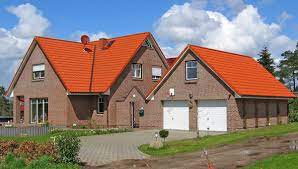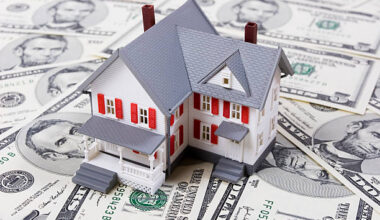You will agree with me that before you had a home, you considered the structure or type of home you wanted to live in with your family. Having a yard, a roof, and four walls you can call your own. A “single-family detached house” is the kind of residential house that most closely resembles your ideal home. This post explains why it’s so difficult to tell the difference between a single-family attached and a detached one (single-family detached vs. attached).
Single Family Detached
A detached single-family home or house is a freestanding structure designed to accommodate only one family. In other words, it is a single-family home that is not joined to another home, as opposed to a duplex, which houses two families.
Additionally, single-family homes must never share any energy, heating, or air conditioning systems with other residences. They have their own private entry points, as well as direct street access.
The owner of a single-family detached home or a house owns both the building and the land on which it sits. On the contrary, with condo ownership, the homeowner only has rights to the interiors of their specific area and shares shared areas with other partners.
There are other options for a single-family house, which we will be going into.
Single-Family Homes: Other Home Options
When you are sure that a single-family house is not right for you, take a look at some of the other options.
Townhouse
Townhouses are a cross between condominiums and single-family residences. Like single-family homeowners, townhouse owners own the inside of their property as well as the land it stands on. However, when it comes to ruling bodies, these homes are frequently more like condos, and you’ll usually find them in neighborhoods with the delivery of services like pools or tennis courts.
Condominiums
Condos can resemble multifamily residences in appearance, with numerous individual units forming a more extensive structure. The difference is that each apartment is managed by a different person, while the common facilities of the condo are jointly owned by everyone who lives there. Condos are typically a fantastic choice for folks who want less responsibility or a somewhat more expensive home.
Multifamily Dwellings
A multifamily home is a household structure made up of several separate housing units. These buildings are ideal for investors searching for rental property because they may either live in one of the apartments and lease out the others or live elsewhere and rent out the entire building.
Apartments
Most apartments are rented rather than owned. If you own your residential flat, you are theoretically a condo owner because you own the inside of your home.
Modular Housing
Pre-manufactured dwellings are produced at a factory and then shipped in “modules” to be erected on-site. These homes can be more economical than more traditional home designs, and if you build one instead of purchasing one, they can be quite customized.
Is It Wise to Invest in Detached Houses?
The margin widens as we go much further, but the study indicates that you’ll experience a comparable percentage of capital gain whether you buy a detached or semi-detached home. A house is a better investment than a flat or an apartment.
Single-Family Homes vs. Semi-detached Homes: Benefits and Drawbacks of Dwellings
If you want privacy and your own space, a detached home is best because you won’t have to deal with your neighbors about radical changes or insufficient maintenance. Noise bothers you less, and you’re less likely to bother your neighbors.
You get more accommodation for your money because semi-detached homes are less costly to build than detached houses. Maintenance costs, as well as the exact work required, can be divided into two groups.
Many semi-detached houses are less expensive than single-detached houses, and they appeal to young couples who want to start a family but are reluctant or unable to pay the exorbitant prices asked by many detached houses. According to one house-buying survey, many people are willing to buy a semi-detached property.
Furthermore, major cities’ inner city regions are often heavily populated, leaving little room for single-family dwellings. Outside of larger cities, on the other hand, transient zones with an equal number of smaller apartment complexes and single-family homes are common.
Since location is so important in real estate, a detached home in a less desirable area may be less expensive than a semi-detached house in a more suitable one.
Whether you buy a semi-detached or detached home is mostly a matter of personal preference, influenced by your needs and the amount of money you have available.
Single-Family Detached vs Attached
A detached home/house is a standalone residence with no other homes or structures attached to it, whereas an attached family home has an outside wall that touches the home next to it. The attached homes are less expensive. Detached homes are preferable because they can accommodate a larger backyard, driveway, or garage. Pools and larger gardens are possible upgrades to detached homes.
Single-Family Detached vs Attached: Definition
In this context, we will be looking at the different meanings of single-family attached and detached houses. Let us start with the single-family attached.
Single-Family Attached
An attached family home, often known as an “SFR” (Single Family Residence), is a house that shares an outside wall with another house nearby. The attached homes are still on the same land as single-family homes, but a common outside wall connects them.
Single-Family Detached
A solitary, “stand-alone” residence is referred to as a single-family detached home or house. In other words, this residential structure will stand-alone, unattached to any other structures. These residences will be on their own lot, with no other outside walls or structures to share with their neighbors.
This usually implies you have more acres of land to do as you like without having to deal with too many people right next to you.
Single-Family Attached vs Detached: Comparison
The terms “attached” and “detached” are both used to describe how your property is laid out with respect to others. Let’s look at each one individually.
Some argue that there is a third type of dwelling known as semi-attached. This means you only have one wall in common with your neighbor. This isn’t always the case, though. Most people, after all, see a simple contrast.
Other units in attached homes share at least one wall with their neighbors. Rowhomes, townhouse-style condos, and residences with two different levels and two separate entrances all fall into this category. Apartment buildings are technically attached dwellings.
Detached dwellings are those that have no shared walls. This category includes the majority of conventional suburban dwellings. It’s worth mentioning that there is no minimum space requirement for them to be considered detached. It’s still a separate house if you only have six inches between you and your neighbors.
Single-Family Attached vs Detached: Difference in Ownership
To be realistic, it depends on the accurate unit you desire. If you live in an attached home, you’re likely to have at least one restriction on what you can do with it. Attached homes are usually owned or managed by an HOA in most communities, which is unlike detached homes.
Single-Family Attached vs Detached: Advantages
A detached house often comes with its own lot. This means you own it and have much more authority over it.
Attached House Advantages
So, you might be asking how attached houses might possibly be advantageous. Actually, there are quite a few advantages.
- Affordability
- Nearby Neighbors
- Stores, hospitals, and family members are all closer.
In addition, living in attached homes puts you close to parks, hospitals, banks, and freeways. Because you’ll have less space to pay for and less parking to pay for, affordable housing will always be accessible in this choice.
Detached Home Advantages
Even before the epidemic hit the housing market, the inclination for detached houses had been progressively increasing year after year. Let’s have a look at a few of the advantages:
- A larger land area
- Possibility of growing crops or raising livestock
- Own a driveway, garage, or fenced-in yard
- There may be enough space for a pool, an addition, or more activities.
More single-family detached homes are being sold than ever before, as people largely seek more property to produce crops, small gardens, or raise animals. Because they have more room, fewer neighbors, and fewer laws and limitations, these residences will almost always provide you “more value for the money.”
Single-Family Attached vs Detached: Which One Should I Go For?
Both attached and detached homes have advantages and disadvantages. I can’t tell you which one is best for you, but I can provide some useful information.
#1. Privacy And Control
Whatever you do to your house will have an immediate impact on your neighbor, and vice versa. This can be both a benefit and a disadvantage depending on how many units your property is connected to. People who desire some privacy and wish to minimize noise complaints can consider buying a detached house. A detached unit, on the other hand, can be lonely at times.
#2. Availability
Your decision will be influenced by your accessibility, especially if you are not forward regarding location. Some dwelling styles will, by definition, be more widely available than others. If you live in a huge city, the chances of having a single unit that is completely isolated from everything are slim at least in cities that were developed rather than out.
#3. Location
The majority of attached homes can be found in larger cities as well as densely populated regions. Detached homes are more likely to be in less densely populated locations and provide you with greater independence. If you prefer city living and having neighbors, an attached home is the way to go.
#4. Pricing
Attached dwellings are often less expensive than detached residences of the same size. However, there are a few tiny variances. The majority of people purchase a single unit in a multi-family linked property, such as a condominium. It’s often a sensible choice to make because landlords who own multi-family apartments tend to generate a solid income from renting out a second-family house.
Finally, in detached homes vs. attached homes, it should be in the notice that a residence linked to another home has a common boundary wall on both sides of the land. A detached home is one that has no connected walls and is self-contained.
What Is A Single-Family Detached?
A single-family detached house is a home that stands alone. As opposed to a multi-family residential house, it is frequently known as a single home. Nevertheless, for the purpose of understanding what the word means, we will split the two words for a better understanding.
1. Single-Family: The term “single-family (home or house)” refers to a structure with only one living unit or suite that is normally maintained by one family or household. Short-term lodging (e.g., hotels), large-scale rental lodging (rooming units), and condominia are not included.
2. Detached: The term detached (house, home, or habitation) refers to a structure that is not connected to other structures by a common wall. This excludes duplexes, as well as any row houses and, particularly, tower complexes that can house hundreds of families in a single structure.
Single-family houses are ideal for someone looking for the classic owning experience, especially If you are the kind that wants to do anything you want with your property anytime. However, such liberty comes with a great deal of accountability; and that takes us to see the good and bad sides of a single-family detached house.
The Benefits and Drawbacks of Single-Family Homes
Here are some things to consider if you’re thinking about buying a single-family home; both for merit and demerit purposes.
The Benefits of Single-Family Homes
#1. More Room.
Single-family houses come in a variety of styles, sizes, and square footage, but they are generally an excellent choice for folks who require more room. Furthermore, if your home is on a large enough property, you may be able to install outbuildings for additional storage or living space.
#2. More Personal Space.
You don’t have to be concerned about someone listening in on private phone conversations or evaluating your musical preferences.
#3. Fewer Regulations.
Although single-family homeowners in HOA-governed neighborhoods may have some constraints on what they can and cannot do with the surroundings of their homes, these rules are generally less rigid than those you might find in a condo association, which may include limitations on the amount and kinds of companion animals you can have.
4. Fewer Bothersome Neighbors.
Single-family homeowners enjoy more solitude and are less concerned about loud neighbors.
#5. Free to change the look of your house.
Going exterior at times to change the looks of your house, is not really in agreement if you are living in a rented building. However, as a homeowner in a single-family detached house, you are free to change the physical look of your home in any way you want it to look.
The Drawbacks of Single-Family Homes
#1. Increased Buying Price.
Single-family homes will typically cost more than other forms of housing in comparable places. This can make them too expensive for first-time home purchasers with limited purchasing power. When determining how much house they can afford, purchasers should evaluate whether a condo would be more economical.
#2. Higher Closing Expenses And Down Payment.
A higher purchase price necessitates a larger cash deposit at the closing table. You won’t be able to secure a mortgage to buy the property if you don’t have enough money saved for a down payment and closing charges.
#3. Maintenance Is Solely Your Responsibility
With a single-family house, you’ll be financially responsible for maintenance and repairs, but you’ll also be responsible for completing the labor to keep the property in good repair. This includes mowing the grass, cleaning the gutters, shoveling snow, and replacing air filters on a regular basis.
#4. Increased Financial Accountability
Single-family houses are not only more expensive upfront, but they also tend to cost more over time. As part of the community’s HOA fees, condos and townhouses frequently give specific services and maintenance to the property’s surface. When your single-family home requires maintenance, you are responsible for the entire expense.
What Is the Difference between Single Family Detached and Attached?
Attached homes are still on the same land as single-family homes, but they are connected by a common outside wall, while detached homes stand alone, unattached to any other structures.
What Means Single Detached?
The term detached refers to a structure not connected to other structures by a common wall. This excludes duplexes and any row houses and, particularly, tower complexes that can house hundreds of families in a single structure.
What Is the Meaning of Detached House?
A detached single-family home is a freestanding structure designed to accommodate only one family. In other words, it is a single-family home that is not joined to another home, as opposed to a duplex, which houses two families.
What Is the Opposite of a Detached House?
Semi-detached houses are less expensive than single-detached houses. They appeal to young couples who want to start a family but are reluctant or unable to pay the exorbitant prices asked by many detached houses.
Why Do People Have One Detached House?
Since there are no shared walls or floors, your entire family may enjoy the spaciousness. There’s no need to be concerned about obnoxious neighbors or foot traffic after midnight. Compared to other types of homes and lots, it is quiet and secluded. A single-detached home has lots of space for your belongings.
Is It Good to Live in a Detached House?
In a detached home, you have more room to spread out, more privacy, and more space for your garden, pets, and kids. Separate homes, as opposed to apartments or townhouses, have more personal space, which is a major perk.
Are Detached Houses Worth More?
In most cases, the value of detached homes is higher than that of semi-detached homes.
Related Article
- CONDO: Definition and Comparison of Condominium With Other Housing Types
- PATIO HOMES: Best Patio Home listings for Sale & Rent (+ Quick Guide)
- PERSONAL PROPERTY VS REAL PROPERTY: Definitions And Differences
- TOWNHOUSE: Definition, Pros, Cons & All You Need (+ Free Tips)
- How Much Are Tiny Homes: 2023 Cost to Build a Tiny Homes
- The Most Affordable Cities in Canada






